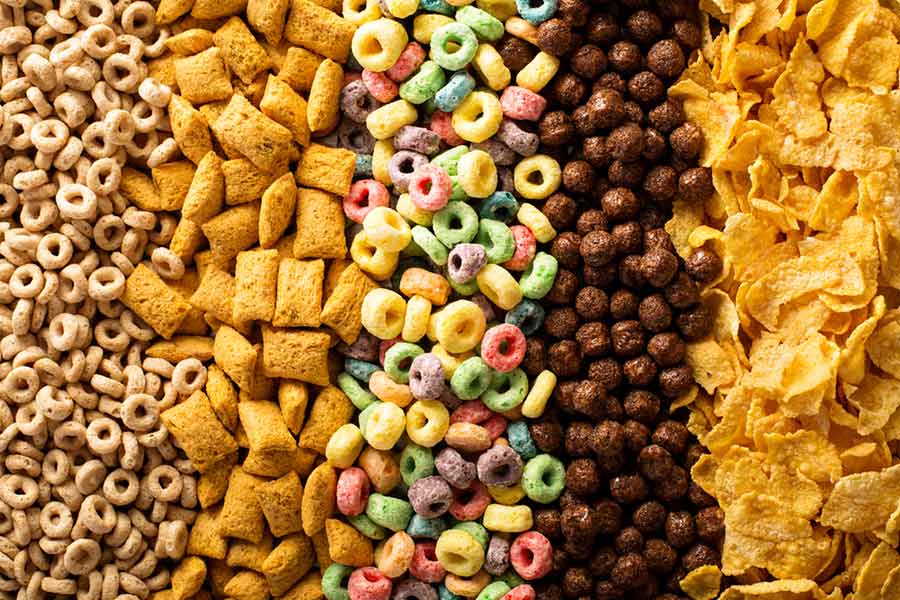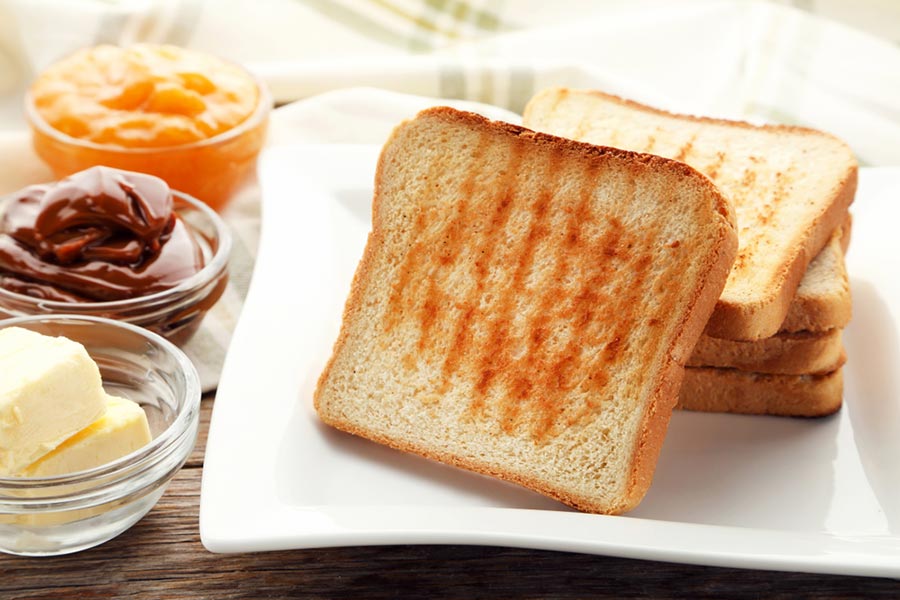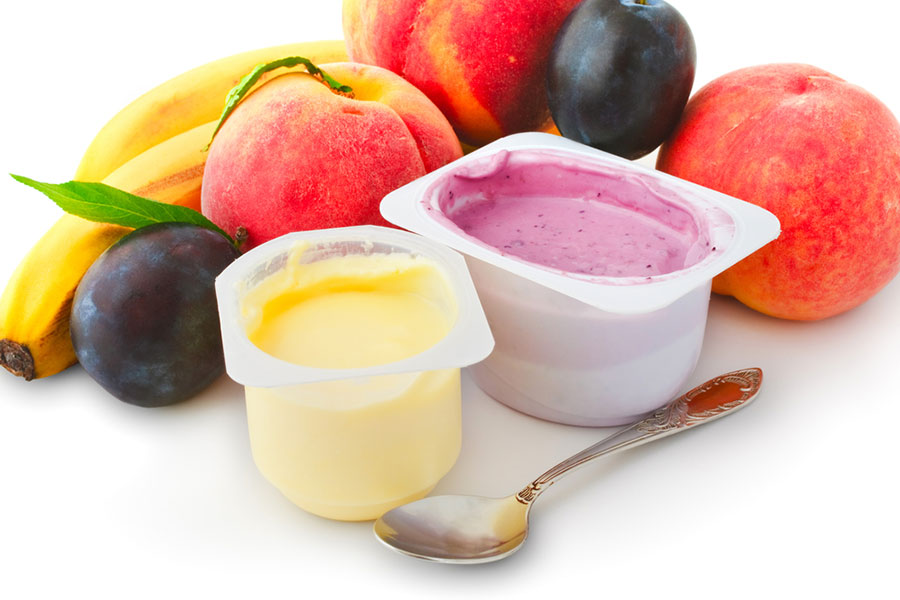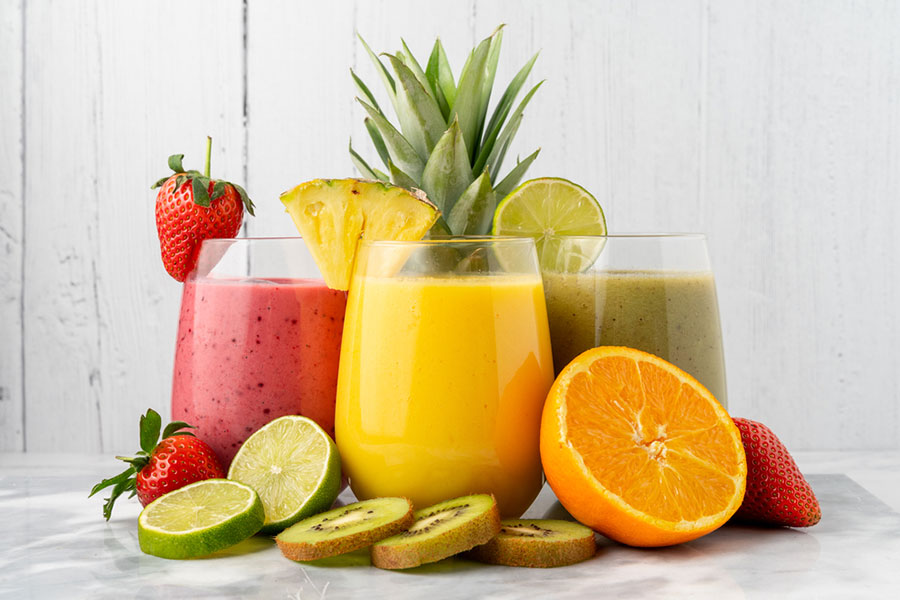Eat your breakfast like a king. But keep an eye on what you eat. A majority of traditional breakfast foods are a far cry from ‘smart carbs’, which are whole, minimally processed foods, slow-digesting and high in naturally occurring fibre. A typical Western dietary pattern is composed of more than 70% processed foods with a heavy emphasis on refined carbohydrates, added sugars, and added fats and oils, whereas a high-quality breakfast should consist of protein-rich foods, low-energy-dense foods, smart carbs, and healthy fats. Here are some of the worst breakfast foods you should never start your day with.
Ready-to-Eat Cereals

Cereals are ready-to-eat breakfasts that are most convenient for us. The majority of store-bought ready-to-eat cereals are high in refined carbohydrates, contain added sugar, and often contain added fats and oils in the form of industrial processed vegetable oils. What’s more, they’re low in naturally occurring fibre, lack healthy fats, and contain none of the phytonutrient-rich foods. This can cause a blood sugar spike and crash you before lunchtime.
Cereals can be a healthy and balanced breakfast if they are made with whole grains that are low in sugar and served with fresh fruit. Take a spin on your favourite traditional breakfast or choose a healthy cereal with at least 3 grams of fibre and fewer than 8 grams of sugar.
Bread & Toast

Bread is a prime example of refined carbohydrates and the worst breakfast food for weight loss. It has added fats and oils and light on protein, naturally occurring fibre, healthy fats, and phytonutrient-rich foods. But most people don’t eat bread or toast on its own but instead, they add sugar and fat in the forms of jelly, jam, and margarine, which is a major source of trans fats. Food manufacturers create trans fats by adding hydrogen to vegetable oils to make them appear more like saturated fats that are solid at room temperature. It can raise your blood sugar and insulin levels, cause a rebound in hunger and increase your risk of weight gain and heart disease.
Instead, try sprouted grain bread, which isn’t made with flour as sprouting grains tend to increase digestibility, absorption of minerals, antioxidants and vitamin C and B content. You can also use whole wheat bread that is high in fibre and decreases the risk of type 2 diabetes, heart disease, and certain cancers. Or use sourdough, which is easier to digest due to its prebiotics as well as the probiotics created during the fermentation process.
Fruit-Flavoured Yoghurts

Dairy consumption usually decreases body fat and increases lean body mass, and what’s more, the effectiveness of reduced-calorie diets is enhanced when dairy is a major component. While dairy such as Greek yoghurt, yoghurt, cottage cheese, kefir, etc. may indeed be a healthy option to include in one’s nutrition plan, it’s important to make choices between the plain, unflavoured and sugar-sweetened versions, including the fruit-flavoured, which typically contain added sugar and/or artificial sweeteners.
Added sugar negatively impacts the health risks for obesity, diabetes, cardiovascular disease, and dental cavities. One popular brand of yoghurt contains 30 grams of added sugar in a single 1-cup serving. In lieu of adding sugar, some food manufacturers may opt for artificial sweeteners, which can reduce the calorie cost of the food while boosting sweetness. Go for plain, organic versions whenever possible. Or still, if you crave something sweet add whole fresh fruit.
Breakfast Sandwiches

Breakfast sandwiches can be considered a step in the right direction. After all, they do contain some protein. Unfortunately, the protein is ‘sandwiched’ between a muffin, bagel, or croissant, all of which are high in calories, fat and sodium. The ‘meat’ and ‘eggs’ that may be found in a breakfast sandwich are typically cooked in refined vegetable oils. A breakfast sandwich contains 973 milligrams of cholesterol while the average amount recommended per day is 300 milligrams.
With that being said, there are several ways we can improve on the concept of the breakfast sandwich. For instance, you could use eggs as the ‘bun’; or, you could ditch the bun altogether and add veggies and healthy fats.
Orange Juice & Other Fruit Juice

While food manufacturers manipulate you to believe that fruit juice is closely related to whole fruit, researchers term it as sugar-sweetened beverages. These are linked to weight gain, diabetes, metabolic syndrome, and dental cavities. Research says the consumption of whole fruit leads to weight loss and reduces weight gain by helping to control calorie intake. On the contrary, consumption of fruit juice promotes weight gain as it is higher in both calories and sugar and is low in fibre than its whole fruit counterpart.
Fibre promotes a healthy digestive tract, improves carbohydrate management, promotes satiety, reduces calorie intake, and enhances weight loss. Consume low-energy-dense whole fruits and increase feelings of fullness and satisfaction. Instead of fruit juice, try a high-protein smoothie with fresh fruits.
Avoid these 5 worst foods for breakfast and shape up your body.
